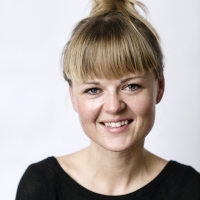Frida Sofie Gregersen defends her PhD thesis at Department of Antropology
 Candidate
Candidate
Frida Sofie Gregersen, University of Copenhagen and Danish Institute for International Studies
Title
Diluted Crime. On the PCC, power, and sociality in Zona Sul, São Paulo
Assessment Committee
- Associate Professor Emeritus Inger Sjørslev
University of Copenhagen, Denmark (chair) - Professor Robert Desjarlais
Sarah Lawrence College – United States of America - Associate Professor Line Dalsgård
Aarhus University, Denmark
Host
Head of Department, Professor (MSO) Bjarke Oxlund
Time and venue
Time: 19 June 2020, 14:00 (The defence is scheduled to last a maximum of 3 hours)
Summary
This dissertation analyses a secret criminal society, known as the Primeiro Comando da Capital (PCC), and its violence and power in an urban periphery in São Paulo, Brazil, and the consequences this has in turn for the social life of the residents who live there.
A central argument of the dissertation is that the PCC in Zona Sul constitutes a criminal ‘secret society’ formed like a network united by the shifting connections between its members, while nonetheless constituting itself as a single secret society. In Zona Sul the PCC is felt as omnipresent, yet its ghostly presence rarely materializes as a collective body or as persons who clearly announce or demonstrate their involvement with it. I examine how the secrecy and silence of the PCC ‘work’ as a specific modus operandi and what kind of power this produces.
This intangible omnipresence of the PCC’s power is captured by the emic term ‘Diluted Crime,’ which denotes how crime and violence are at the same time all-pervasive and uncontainable. They spill over into Zona Sul’s urban landscape and sociality, not in visible, materialised ways, but, I suggest, through affects and atmosphere. In six analytical chapters I examine how these affective experiences become intertwined with the threat of violence and the ways in which the PCC’s power is established and sustained.
The ethnographic material collected for this dissertation is based on six months of fieldwork followed up by shorter field visits (2015-2019) in the peripheral district of Zona Sul of São Paulo. The dissertation critically engages with theoretical writings on power and affect by studying the affective ‘traces’ of violence and of the PCC. Through analysis of the ways in which the PCC maintains and enforces its power and the consequent influences this power exerts on the residents, this dissertation illuminates and raises new questions about the nature of criminal societies and their impact on sociality in the world’s growing urban peripheries.
Link to defence
The PhD defence can be followed on Zoom via this link: https://ucph-ku.zoom.us/j/61841138804
The link will be open half an hour before the defence begins.
